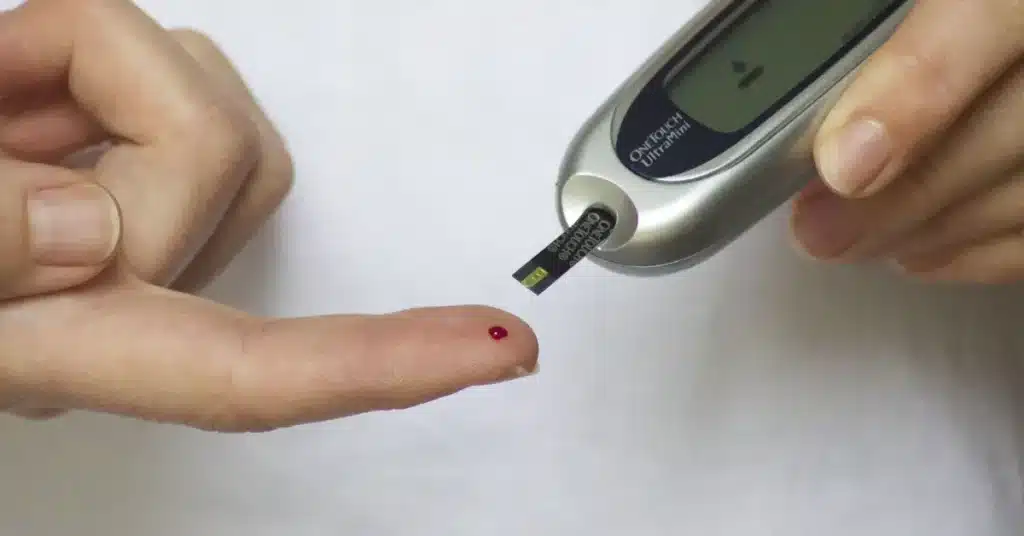Medically Hypoactive Sexual Desire Disorder (HSDD) is the persistent or frequent lack of interest in sexual activity in a person.
It is a common Sexual Dysfunction affecting both men and women.
HSDD can hinder sexual well-being and cause problems in a relationship leading to distress and frustration.
The exact cause of HSDD isn’t entirely known.
This article will dive into the symptoms, causes, and effective treatment methods of Hypoactive Sexual Desire Disorder.
What is Hypoactive Sexual Desire Disorder
Hypoactive Sexual Desire Disorder (HSDD) is characterized by a lack of desire for sexual activity or low libido in men and women. It is a common type of Sexual Dysfunction affecting women.
The other terms used for HSDD are Hyposexuality or Inhibited Sexual Desire (ISD).
HSDD can be general, situational, acquired, or lifelong.
In general HSDD, a person generally lacks sexual desire.
In situational HSDD, a person with HSDD still has sexual desire but lacks the sexual desire for a current partner.
On the other hand, acquired HSDD started after an interval of normal sexual functioning, whereas in lifelong HSDD, the person has always had no/low sexual desire.
Although both men and women are prone to HSDD, women are more susceptible to it.
According to a review published by NIH, around 8.9% of women aged between 18 to 44, 12.3% ages 45 to 64, and 7.4% aged above 65 have HSDD.
HSDD is often confused for Female Sexual Arousal Disorder (FSAD). However, these two conditions are different, though they are both common types of Female Sexual Dysfunction.
Hypoactive Sexual Desire Disorder symptoms
 Source: Pixel_Shot
Source: Pixel_ShotSome of the common symptoms of HSDD include:
- Lack of sexual desire
- Absence of sexual fantasies or thoughts
- Reduced sex drive
- Emotional distress
- Lack of sexual arousal
- Premature Ejaculation or orgasm
- Relationship issues
The symptoms mentioned above may vary from person to person.
Men with HSDD may find it difficult to get or sustain erections, a condition known as Erectile Dysfunction.
Occasional changes in sexual desire are normal, and one should not mistake it for HSDD.
For the easy diagnosis of HSDD, the presence of these symptoms for a lengthy duration—usually at least six months is required.
Hypoactive Sexual Desire Disorder causes
 Source: TesaPhotography_from_Pixabay
Source: TesaPhotography_from_PixabaySeveral physical, psychological, and social factors that can lead to HSDD.
Some of the common causes of HSDD include:
- Certain health conditions, like Diabetes, Multiple Sclerosis, Hypothyroidism, cardiovascular problems, hormonal imbalances, particularly change in testosterone and estrogen
- Specific medicines, including antidepressants and high-blood pressure medications
- Mental health conditions, including depression, stress, and Anxiety
- Relationship problems
- Inadequate sleep, poor diet, and a sedentary lifestyle
- Increased age
Hence, different factors can influence HSDD.
To determine the underlying causes of HSDD in a person, a complete assessment by a certified medical expert is required.
Effective treatment methods can be employed successfully after diagnosing the exact cause of the condition.
Recommended read: Don’t miss our insightful article on the causes of low libido in women! Check out – What Causes Low Libido in Women? Everything You Should Know
Hypoactive Sexual Desire Disorder treatment
Different treatment approaches can be employed for HSDD depending on the underlying cause.
These include psychotherapy, medications, hormone therapy, and lifestyle changes.
Psychotherapy
If HSDD has a psychological cause behind it, then psychotherapy could help.
Healthcare professionals usually recommend counseling or therapy, such as Cognitive-Behavioral Therapy (CBT), to address the underlying psychological cause contributing to the condition.
Psychotherapy can aid patients with HSDD in examining and resolving mental difficulties, trauma from the past, and relationship concerns that may be affecting their sexual desire.
Medications
Sometimes, doctors may recommend medications to treat HSDD.
The FDA has approved medications such as Flibanserin and Bremelanotide, which is sold under the brand name Vyleesi, to manage HSDD in pre-menopausal women.
Besides these FDA-approved medications, some off-label libido pills like Lovegra can also treat HSDD.
According to some studies, Bupropion, an antidepressant, may boost sexual performance in women with HSDD even if they are not depressed.
Hormone therapy
If HSDD results from hormone deficiency, Hormone Replacement Therapy can aid in overcoming the situation.
Estrogen therapy is found to be helpful in women with HSDD that help boost libido.
On the other hand, males suffering from HSDD may regain their libido or sexual health with Testosterone Replacement Therapy.
Lifestyle changes
A healthy lifestyle plays an essential part in maintaining the sexual health of a person.
Adopting a healthy lifestyle can aid in regaining sexual health.
Exercising daily, having a nutritious diet, getting enough sleep, and overcoming stress can help in managing symptoms of HSDD.
Conclusion
Hypoactive Sexual Desire Disorder (HSDD) is a medical condition affecting many men and women across the globe.
It is defined as a lack of interest in sexual activity.
The main symptom of HSDD includes reduced or lack of sexual desire, leading to distress and relationship issues.
HSDD can occur due to several physical, psychological, and social factors.
These include hormonal imbalances, certain health conditions, some medicines, stress, Anxiety, and depression.
Treatment and management of HSDD are possible.
It depends on the underlying cause, and these treatment options include psychotherapy, hormone therapy, medications, and lifestyle changes.
However, it is advisable to consult a certified doctor before opting for any treatment method.
Frequently Asked Questions
What causes male Hypoactive Sexual Desire Disorder?
Various physical, psychological, and social factors can lead to HSDD. These include medicines, hormonal changes, certain diseases, stress, depression, and Anxiety.
How is HSDD treated in men?
HSDD can be treated depending upon the underlying cause in men. Psychotherapy, hormone therapy, medications, and lifestyle modifications are some practical ways to manage HSDD.
What medications treat HSDD?
HSDD can be treated effectively with FDA-approved medicines such as Flibanserin and Bremelanotide.
Who is encountered by Hypoactive Sexual Desire Disorder?
Hypoactive Sexual Desire Disorder can affect both men and women. However, women are more prone to HSDD than men.
What are the main causes of hypoactive sexual desire?
Hormonal imbalances, some medical conditions, certain medicines, stress, Anxiety, depression, lack of sleep, and a sedentary lifestyle can cause HSDD.
When referencing outside resources, GoodrxMedicine always provides full citations. To learn more about the measures we use to maintain the quality of our content, please review our Content Information Policy.











